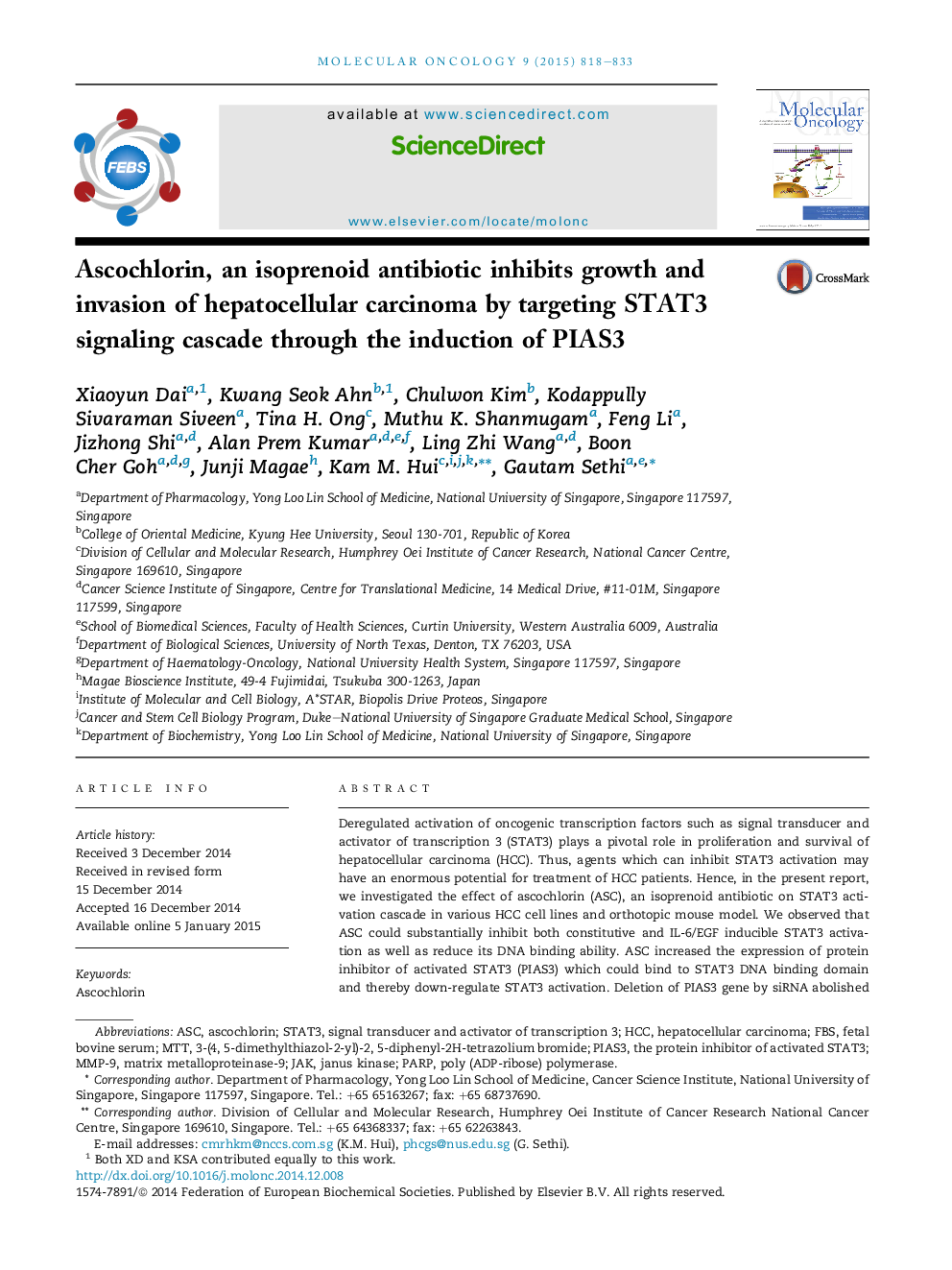| Article ID | Journal | Published Year | Pages | File Type |
|---|---|---|---|---|
| 2145553 | Molecular Oncology | 2015 | 16 Pages |
•ASC abrogates both constitutive and IL-6/EGF inducible STAT3 activation in HCC cells.•ASC reduces cell viability, migration/invasion and induces apoptosis in HCC cells.•ASC inhibits tumor growth at very low doses in an orthotopic HCC mouse model.
Deregulated activation of oncogenic transcription factors such as signal transducer and activator of transcription 3 (STAT3) plays a pivotal role in proliferation and survival of hepatocellular carcinoma (HCC). Thus, agents which can inhibit STAT3 activation may have an enormous potential for treatment of HCC patients. Hence, in the present report, we investigated the effect of ascochlorin (ASC), an isoprenoid antibiotic on STAT3 activation cascade in various HCC cell lines and orthotopic mouse model. We observed that ASC could substantially inhibit both constitutive and IL-6/EGF inducible STAT3 activation as well as reduce its DNA binding ability. ASC increased the expression of protein inhibitor of activated STAT3 (PIAS3) which could bind to STAT3 DNA binding domain and thereby down-regulate STAT3 activation. Deletion of PIAS3 gene by siRNA abolished the ability of ASC to inhibit STAT3 activation and induce apoptosis in HCC cells. ASC also modulated the expression of diverse STAT3-regulated oncogenic gene products. Finally, when administered intraperitoneally, ASC also inhibited tumor growth in an orthotopic HCC mouse model and reduced STAT3 activation in tumor tissues. Overall our results indicate that ASC mediates its anti-tumor effects predominantly through the suppression of STAT3 signaling cascade, and can form the basis of novel therapy for HCC patients.
